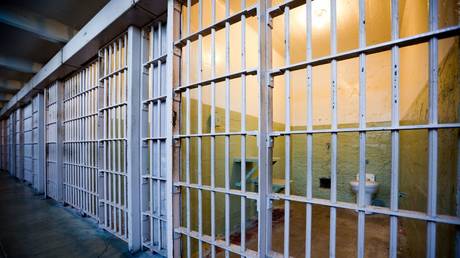ARTICLE AD BOX
Robert Roberson’s case puts a spotlight on a law allowing convictions to be challenged if new scientific evidence emerges
The execution of a man condemned to death in Texas has been stayed by the state’s Supreme Court due to a subpoena ordering him to testify about his contentious conviction in a case in which doubt has been cast on the scientific evidence used to reach the verdict.
The injunction halting the execution of Robert Roberson, 57, was issued last Thursday. Roberson is scheduled to testify to members of Texas House committee on Monday.
Roberson’s case has put a spotlight on the theory known as shaken baby syndrome, a once widely accepted diagnosis that bolstered criminal prosecutions, but has come under increasing scrutiny with evolving science.
In 2002, Roberson was accused of killing of his two-year-old daughter Nikki Curtis. He was sentenced to death the following year after prosecutors alleged that he violently shook the toddler back and forth, causing fatal head trauma.
According to court records as cited by the Washington Post, in the days before Nikki’s death a doctor had diagnosed her as having a viral infection and a fever. Roberson has stated that on the morning of his daughter’s death, he found she had fallen out of bed. After comforting the girl he went back to sleep, but later that morning he found her limp and unresponsive and took her to the emergency room.
A CT scan revealed a small bleed on the surface of the girl’s brain, and showed that it had swollen and shifted to one side, the records seen by the paper read, adding that doctors did not find other signs of abuse.
Read more US state executes second prisoner using controversial gassing method
US state executes second prisoner using controversial gassing method
Roberson’s attorneys reportedly argued that their client had been convicted of a crime that had never happened, because his daughter died of natural causes from a severe case of viral pneumonia. Meanwhile, the Post noted that doctors were taught that the presence of three specific symptoms known as “the triad,” which included brain swelling and bleeding on the brain surface and behind the eyes, were proof of shaken baby syndrome. The diagnosis was accepted as proof of a violent abuse of the child in the absence of witnesses.
Roberson had been set to die by lethal injection on Thursday, but efforts made by a bipartisan group of lawmakers, medical experts, and the former lead prosecutor on the case delayed the execution for hours and ultimately stopped it, marking a twist rarely seen in a state with the most number of executions in the country.
Texas lawmakers with the House Committee on Criminal Jurisprudence unanimously voted to subpoena Roberson in an attempt to delay the execution. The vote reportedly came after a hearing called to discuss the effectiveness of a 2013 state law, known as the “junk science statute,” which allows defendants to challenge their convictions if new scientific evidence undermines what was presented at the original trial.
.png)
 1 month ago
2
1 month ago
2








 English (US)
English (US)